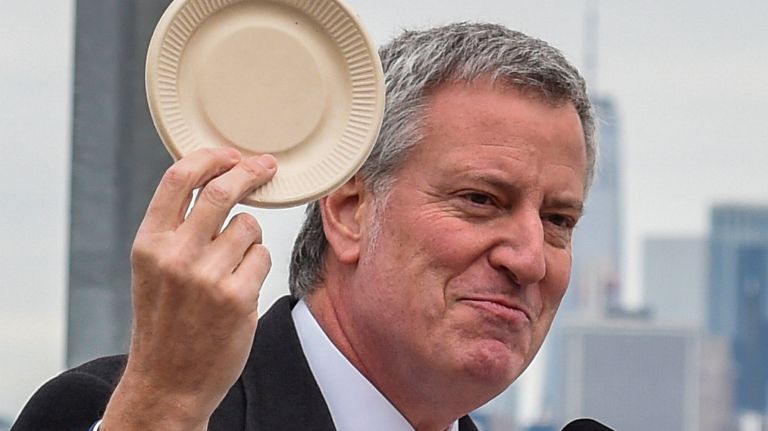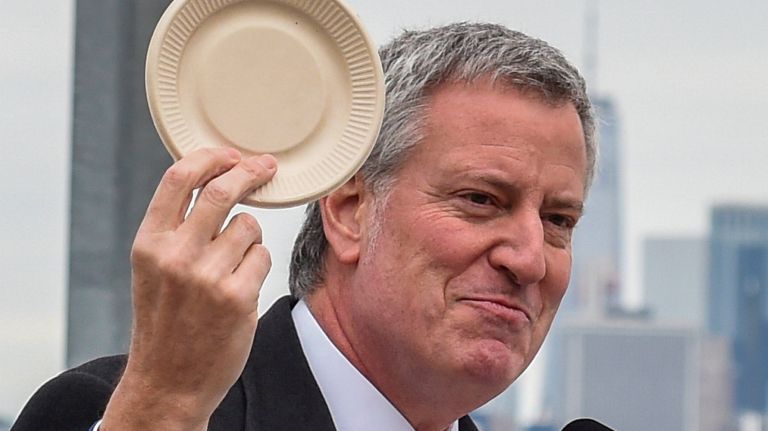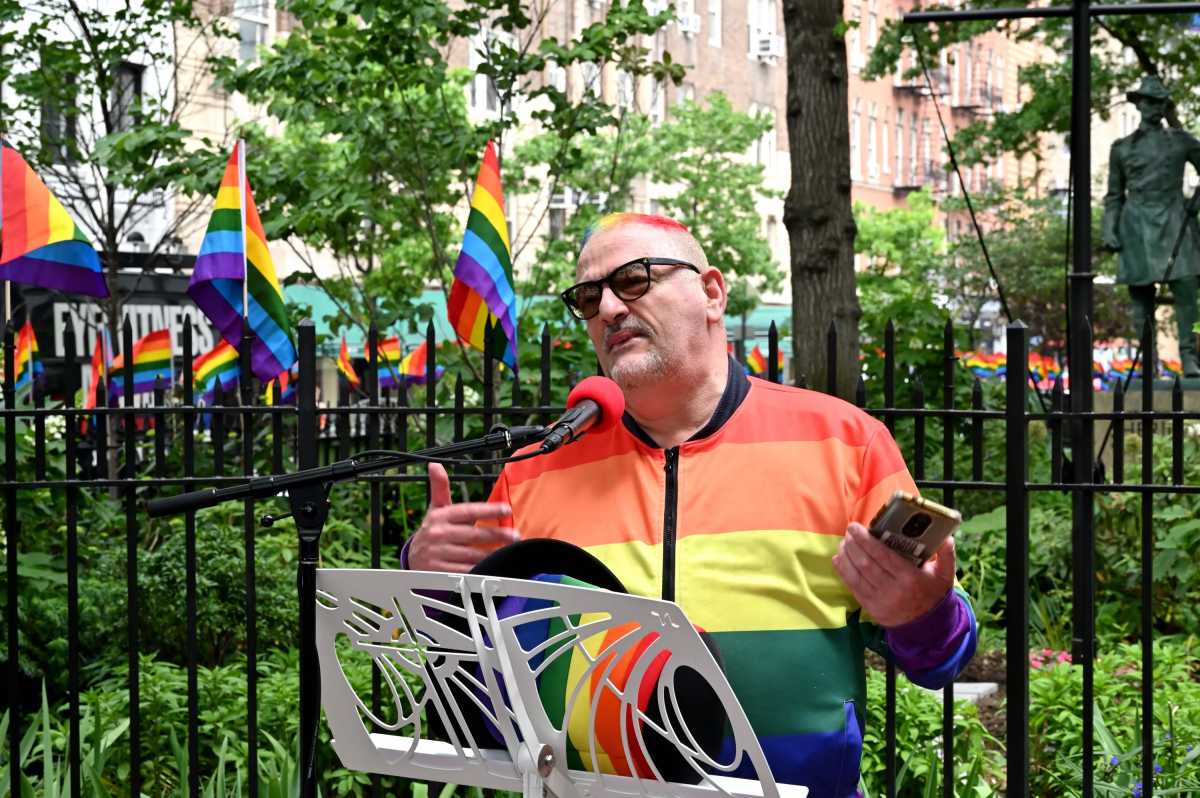
The city will no longer purchase 1.1 million pounds of single-use plastics for its agencies, Mayor Bill de Blasio announced Thursday.
De Blasio also said he will back a City Council bill that would ban single-use plastic foodware in private restaurants and establishments.
“Today we say no to plastics, we say no to fossil fuels,” he said during a news conference at the Sims Municipal Recycling facility in Brooklyn.
De Blasio signed an executive order telling city agencies to immediately slash the use of and not sign any new contracts to purchase disposable plastic cups, forks, plates and other items.
“I’m talking about a whole variety of things we got used to relying on but don’t need anymore,” de Blasio said. “All those things we have alternatives for. City agencies will shift to compostable or reusable by the end of 2019.”
The city spends about $1 million a year on single-use plastics, according to Lisette Camillo, commissioner of the Department of Citywide Administrative Services. Moving to alternatives will cost more, but Camillo said she did not know the exact amount.
De Blasio made a point of saying there will be exceptions for medical reasons. People with disabilities, who often rely on plastic straws, will have unlimited access to any single-use item they need.
Last year, members of the disabled community slammed the City Council for not consulting with them before introducing legislation to ban city eateries from using disposable plastic straws.
“People with disabilities are environmentalists too,” said Victor Calise, commissioner of the Mayor’s Office for People with Disabilities. “We help the Earth as much as we can but the reality is some people cannot use currently available alternatives. They need plastic straws and food ware.”
De Blasio said Thursday’s announcements were part of the city’s larger plan to battle climate change and reduce carbon emissions by at least 80% by 2050.
The growing impact of plastic pollution in the environment — and especially in the waterways — has also sparked municipalities around the city and the globe to take measures that ban the use of plastic straws and other single-use foodware.
Officials said they expect to slash the agencies’ use of these plastics by 95%, thereby reducing the city’s carbon emissions by about 500 tons a year.
“By ending our reliance on these items, we will remove 1.1 million pounds of plastic from landfills,” said Daniel Zarrilli, senior director of Climate Policy and Programs for the city and coordinator of the city’s OneNYC program. “Not only that, by tackling the unnecessary single-use plastics in our lives, we will reduce those carbon emissions, cut down on the plastic pollution that litters our streets, clogs our waterways, and spoils our oceans and marine life.”
The city’s Department of Sanitation collects about 36 million pounds of single-use plastics from homes across the five boroughs. Officials estimate tens of millions more are picked up from commercial establishments.
City agencies have 120 days to come up with a plan to reduce the use of single-use plastics. The ban is expected to fully be implemented by the end of the year.
Earlier this year, the city’s ban on foam containers went into effect, making it illegal for eateries, food carts and other places to use expanded polystyrene cups, plates, trays and clamshell containers.
NYC purchases about 1.1 million pounds of single use plastics every year for city government use
The DSNY picks up about 36 million pounds of single use plastics from NYC households each year
New York City’s carbon emissions will be reduced by about 500 tons per year if the city municipal agencies stop purchasing and using single-use plastics

































